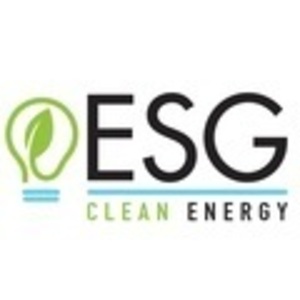German ethanol plant to utilize carbon-free power

December 13, 2021
BY ESG Clean Energy
ESG Clean Energy LLC, developers of net zero, distributed power generation and clean energy manufacturing solutions, announced today it has signed a letter of intent (LOI) with Ethatec GmbH for the use of ESG’s patented CO2-free power generation technology to power its production of ethanol.
Under the LOI, US-based ESG Clean Energy will provide its patented carbon-capture system to enable Ethatec GmbH to produce different products in a sustainable way while preventing tons of carbon dioxide from entering the atmosphere every year.
Ethatec uses a unique process using waste from bakeries and pizza factories (old bread, dough, and other starch-based foods). The method involves first crushing and mixing the raw waste with water before being fed into a hammer mill. The resulting liquid is then mixed with water and enzymes and heated in a multi-stage mashing process to saccharify the starch. It is then cooled and fed into fermentation tanks. Yeast is then added for alcoholic fermentation of the sugar and after 72 hours, the mixture is fed to a distillation system where ethanol is obtained. Ethatec can also produce and manufacture other products using this unique system, including biogas and nitrogen fertilizer.
In order to meet the growing power demand for their production process, significant amounts of energy are required to run the operation. By using the ESG Clean Energy carbon-capture power generation system, Ethatec will be able to use natural gas to power their manufacturing plants while achieving a net zero carbon footprint.
“We are excited to explore the new opportunities with Ethatec and see how our carbon-capture system can augment their unique manufacturing system,” said Lutz Deyerling, vice president European operations and corporate finance at ESG Clean Energy. “Combining their system with ESG’s carbon-capture technology would create one of the most environmentally friendly systems in the industry today.”
The ESG system is truly unique with its ability to create a Net Zero carbon outcome from a conventional, natural gas, internal combustion engine without loss of efficiency.
Advertisement
Advertisement
Exhaust gas contains a significant amount of water vapor and CO2 as naturally occurring byproducts of the combustion process. By separating those two elements, the ESG system can produce distilled water – and other commodities such as urea, methanol, and recycled plastics – while capturing close to 100 percent of the CO2.
As a result, Net Zero Carbon Footprint power production is achieved.
Besides electrical power generation, the ESG system can also be utilized in a number of different environments, including:
Plastics Recycling Operations – Can be made more affordable and safer for the environment by providing low-cost, CO2-free heat that is critical to its processing.
Nitrogen Removal – Can be done more efficiently and cleanly. Nitrogen can cause algae blooms in wastewater treatment plants and is a risk to human health, so its removal has become an emerging, worldwide concern.
Advertisement
Advertisement
Stranded Natural Gas Wells – Can be effectively converted from non-operating revenue producers to operating revenue producers by incorporating the ESG system into its production process.
Microgrids – Can be made more reliable in times of emergency with the distributed power abilities of ESG power generation when regional grids go down.
Data Centers – Can provide large data centers with clean low-cost energy in a relatively small package.
Crypto Mining Operations – Can meet the energy demands of crypto mining operations without emitting carbon dioxide into the atmosphere.
For more information about ESG Clean Energy, please visit www.ESGcleanEnergy.com.
Related Stories
Bangkok Airways Public Company Limited has officially announced the adoption of sustainable aviation fuel (SAF) on its commercial flights, reinforcing Thailand’s green aviation industry. The initiative took effect starting July 1, 2025.
Avalon Energy Group LLC and Sulzer Chemtech have signed a strategic alliance and partnership agreement to scale up the production of SAF. Under the agreement, Avalon has selected BioFlux technology for its portfolio of SAF projects.
Neste and DHL Express have strengthened their collaboration with the supply of 7,400 tons (9.5 million liters) of neat, i.e. unblended, Neste MY Sustainable Aviation Fuel to DHL Express at Singapore Changi Airport starting July 2025.
CoBank’s latest quarterly research report, released July 10, highlights current uncertainty around the implementation of three biofuel policies, RFS RVOs, small refinery exemptions (SREs) and the 45Z clean fuels production tax credit.
The U.S. Energy Information Administration maintained its forecast for 2025 and 2026 biodiesel, renewable diesel and sustainable aviation fuel (SAF) production in its latest Short-Term Energy Outlook, released July 8.
Upcoming Events










